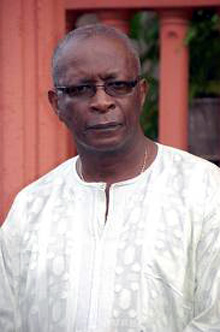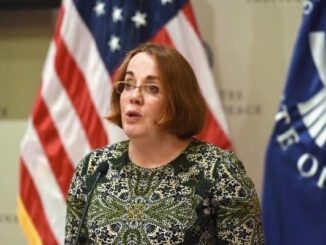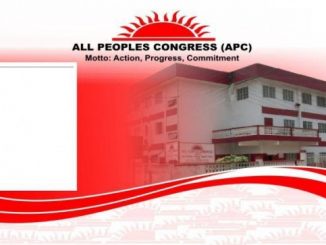
Strategic Media & Development Communications Unit —
The appointment of Andrew Keili as a member of the Electricity and Water Regulatory Commission is attracting a lot of coverage, and in a rather quaint way, the doubters have portended this appointment as a deft move by President Ernest Bai Koroma, but for very good reasons. That this is to all intents and purposes an elevation that befits Mr Keili’s career and professional standing is not in doubt. That by drawing from the knowledge, expertise and experience acquired by Andrew Keili over the years to be surrendered for the better use and benefit for Sierra Leone is not only laudable but commendable as to the discretion of the donor. Mr Andrew Keili had made a decidedly well-reasoned choice to serve his country and has answered that call of service from a government supposedly hostile to his convictions . For that, the man has received in some quarters nothing short of vitriol and hostility.
ANDREW KEILI
It is so very easy to mistake the man for the person, but in such an appointment, it is not unusual for the man to convince the person of the greater good that an acceptance would augur for nation building. In these circumstances, the aspiration to serve and make a difference become a mere paradigm of prevailing reality in so far as the focus to determine the direction of progress from an individual standpoint, entrenched in the full knowledge of that capacity to perform rather than any other consideration which may tend to be relegated to a passive distraction, reminiscent of sentimentalism and an obscure take on the pragmatic realism of one’s political aspirations. Mr Andrew Keili may have well and truly considered that any aspirations to lead any so called people of political ideology is somewhat constrained by prevailing environment where hate, discord and fragmentation causes profound differences to implode the body politic. The consideration here is that non accepting the offer to serve his country, Mr Andrew Keili would have negated any prospect of assuming flag bearer status for his political party. That position is not distracted from the corresponding assertions that his was the face of his party’s energy policy and therefore the tendency for compromise of values as per his membership on the Electricity and Water Regulatory Commission would prejudice any contrary energy prescriptions that may be contemplated by his party. While these sentiments are not already conclusive, they may have the tendency to mislead and grossly detract from the contemporaneous application of proper authority and the exercise of influence within a political environment. Mr Andrew Keili may have variously considered the ramifications of his appointment in some detail, considering that his call to serve his country has been made under a Government or dispensation to which he ought to be fundamentally opposed. His considerations and the decision to accept the offer may have been predicated on such robust evaluation of his position vis-a-vis political aspirations for leadership and in so far as reaching the justifiably critical conclusion that he would have no hope of being transformed from where he stands now into a position with any semblance of political authority or power.
Two things immediately spring to mind. The decision to accept the offer was not made lightly nor would it have been made in isolation to the views and potentialities of such a decision prejudicing any future prospects for Mr Keili within his party. From the drivel that spews out from those who vehemently oppose him, they contend only with his aspiration to become leader of their party or otherwise on his chances as a future flag-bearer. They have failed to factor in the possibility that Mr Keili would have made a decision on such an eventuality now, even as part of his rationalization in taking up this offer to serve his country. He may well have reasoned that based on the conduct of his party, based on the manner in which his candidature was determined the last time round and also based on the current state of infighting and disparagement within his party, he is most probably well advised to stay clear of being a potential candidate for flag bearer next time around.
It is conceivable that Andrew Keili’s decision to accept membership of the Electricity and Water Regulatory Commission has been shaved off from the contention that he still holds that desire to lead his party into a future Presidential election. This brings us squarely to the question of Andrew Keili’s chances of becoming a player in any future SLPP Government and more so to the more apt question of when will there be one such type of Government. The success of the SLPP in any election, necessarily has to be preceded by a uniting of the party as a political force, a demonstration to the electorate that the party is capable of governance and enabled to withstand fierce opposition for leadership that would inevitably come from the ruling APC. The experience of history tells that the APC are much better at keeping power as the SLPP seem to be better at losing it through the ballot box. Then again, the prospect of an immediate return to power by the SLPP may be conditionally remote given the current state of the Party. It is therefore significant that this move to accept such a position by Andrew Keili may have caused such rumpus.
The other side to this imbroglio is the aspect of it that intimidates Andrew Keili’s detractors the most. That this offer was in the first place a deft move to induce Andrew Keili to a job within the opposition in a manner that was intended to expose the fault lines therein or alternative a wicked ploy to destabilize the opposition further. That this acceptance by Andrew Keili shows weakness and lack of leadership resolve, that he ought to sacrifice his personal ambition for a political party that is severally engaged on internal strife and disengagement from practical thinking and rhetoric. Furthermore, the acceptance of the offer to serve his country by Andrew Keili was unwitting, and in doing so, he had fallen for yet another machination by President Ernest Bai Koroma to destabilize the SLPP. Even if these allegations were true and it is indeed the case that this offer was cynical, it bears no resemblance to the fact that Andrew Keili has something to offer the nation and in the event, a President who would turn a blind eye to his talents would be doing so to his own chagrin. It is not even being considered here that on a personal level, Andrew Keili and President Koroma may have had such prior acceptance, respect and consideration for each other that would have transcended their political differences. That both men, of great respect and dignity in their respective stations in life would have been reasonable enough to have considered that there would be a time when the abject selfishness of political aggrandizement must be discarded for the greater benefit of their nation, or that President Koroma would have given the nod for Andrew Keili to go through to this committee on the basis that he sees the ultimate beneficiaries as the people and nation of Sierra Leone. In essence, it is much more believable that the opportunity for Andrew Keili to serve in any capacity and within a field of endeavor so close to his chosen profession and even to his heart is a mark of the man’s fortitude and steadfastness. By accepting this appointment, Andrew Keili has been more of a man than a person. He has made a conscious decision to take a firm stand on the issues for which he holds credence and is ready to be held accountable if his contribution is negated by false or impassionate rendering of his credibility.
There is a moral in this appointment after all. To accept the pragmatic of reality within any political dispensation is a mark of substance and in fact a deliberate positioning of the very firm foundations on which the duty and commitment to public service should be based on. Andrew Keili may have made some very careful calculations which invariably would have included his assessment of his prospects and the future of his family life in Sierra Leone. No doubt, he would have considered that the greater good for Sierra Leone is best served by the provision of adequate services to all its peoples. He may have even considered that his expertise in drawing up the regulatory functions for energy and water operators would accord a more efficient delivery of those services and in the end accord the nation a well-planned and properly executed energy and water regulatory environment. Where he may have gone amiss, should not be a point to judge him but rather be it that adequate focus is concentrated on where he would do the most good.




Leave a Reply